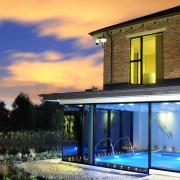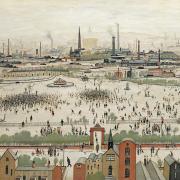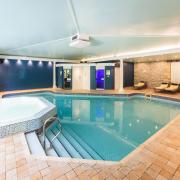Respite care not only offers a lifeline to informal carers but can also provide great benefits to those being cared for.
Jen Roberts, development manager at Sandstone Care’s new home, Ribble Court, in Much Hoole, near Preston, outlines the importance of respite care.
She also highlights why individuals choosing either respite or permanent care expect a menu of choice these days.
Q: Can you tell us a little more about Ribble Court?

Ribble Court is Sandstone Care’s sixth home and was purpose-built to offer 53 beds to those over the age of 18 requiring high-end residential, specialist and complex nursing care. After considerable research we realised there was a particular gap in the market for bariatric care (the treatment of those who are morbidly obese).
However, we can care for people with a range of conditions. We always assess the needs of anyone who approaches us regarding their care and will decide whether those needs can be met.
We offer respite care (with a minimum stay of one week) and permanent care. We also provide step down care for those leaving hospital, possibly after some time. It can be a real culture shock returning home on your own after being in an acute setting and we are able to offer some rehabilitation and help to get people back on their feet in a more normal environment.
Q: Why is there such a demand for respite care?
Respite care is so important for both the informal carer and the person being cared for. We are seeing great interest in respite care at the moment because people have been very hesitant about using it since the start of the pandemic, largely because families and residents were worried about the potential risks.
There is also a real need at the moment because a lot of places weren’t offering respite care during lockdown periods and many informal carers have not had the chance of a break in a very long time.
Q: Why is respite care so important?
It is essential from the informal carer’s point of view because many of them are never off duty – caring is a 24/7 job for them. For us, as nurses and care practitioners, we do a shift; knock off; go home and refresh ourselves before coming back the next day, but informal carers can be on duty all the time.
Respite care enables them to have a well-earned rest – to pursue any hobbies or go on holiday – and it can prevent burnout. Sometimes, without it, things can reach a crisis situation.
From the point of view of those being cared for, respite care can provide an opportunity to try a service to see whether they like it before making a decision about permanent care.
It can also offer the opportunity to make new friends and try different things: we have a whole raft of activities here that our residents can enjoy and be part of. Respite care can be a win-win situation for the carer and the person being cared for.
Q: What do people want from their respite and permanent care?

When people look at care, they want options about what that care looks like. When we go on holiday, we all have options as to whether we are going to go into self-catering, bed and breakfast or all-inclusive.
Here at Ribble Court, we are another provider of the whole care menu. Some people are quite happy in an old house, which has been converted into a care home, but lots of others now want en-suite bathrooms, bigger bedrooms and wifi etc. They want all the luxuries and we are able to provide them.
Ribble Court is purpose-built and because of that it lends itself to looking after people with lots of different needs. And the building itself promotes independence: the corridors are wide; there are elevators going up to each floor and people can get around much more easily, whether they are walking or in a wheelchair. Everything is level access; the building is easy to use; we have a lot of activities going on and we have a central courtyard, which is enclosed and a really lovely place to enjoy the sun.
We also have a rear garden that catches the sun but has shady areas too, making it really delightful when the weather is hot.
Q: Who does your respite and permanent care appeal to?
Much Hoole is a lovely place and our aim is very much to be part of the community; to provide a service for those in the locality or for those with family living in the community. We will of course assess and review anyone who wants our services, but we want people in the area to know we are here for them.
For more information visit sandstonecare.co.uk, call 0800 048 5774 or email jen@sandstonecare.co.uk



























